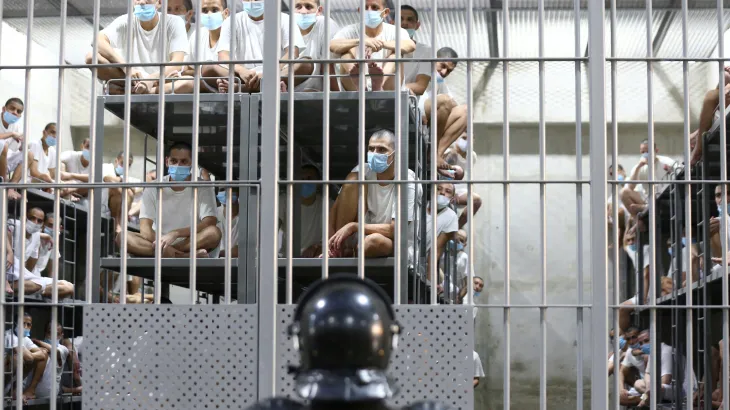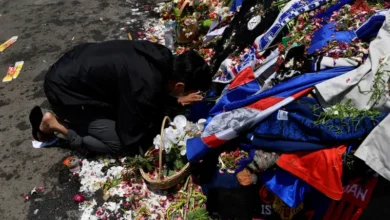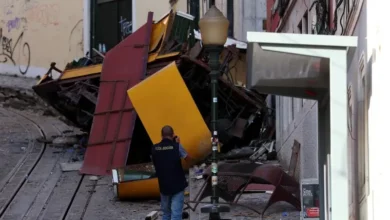Trump faces contempt risk: What happens if president violates court orders?

US President Donald Trump’s administration could be held in criminal contempt of court for disobeying an order to stop the deportations of alleged Venezuelan gang members who could not challenge their deportation, federal judge James Boasberg said on Wednesday.
Boasberg has given the US government one week to remedy its dismissal of his order by providing the deported men with the right to due process in court. The Trump administration has appealed the ruling. The judge’s Wednesday ruling is the latest addition to the growing pile of legal challenges that Trump’s executive orders and actions are facing.What happened?
Late on March 15, Boasberg had issued a temporary restraining order preventing the Trump administration from exercising the Alien Enemies Act of 1798 to carry out deportations. Boasberg is the chief judge of the District Court for the District of Columbia.The Alien Enemies Act gives the US president the discretion to detain or deport non-citizens during wartime. The president can carry out these deportations based solely on citizenship status, without a hearing.
While issuing the restraining order, Boasberg had also ordered that deportation flights en route to El Salvador turn around and return.
Hours after this restraining order was issued, on the morning of March 16, El Salvador President Nayib Bukele claimed in an X post that his country had received 238 members of the Venezuelan gang Tren de Aragua and 23 members of the Salvadoran gang MS-13 from the US. Bukele also reposted a news snippet about Boasberg’s ruling, captioning it: “Oopsie … Too late” with a crying-with-laughter emoji.
The alleged gang members are being held in a maximum-security prison in El Salvador, the Centre for the Confinement of Terrorism (Centro de Confinamiento del Terrorismo) or CECOT.
In a post on March 18 on his Truth Social platform, Trump called Boasberg a “Radical Left Lunatic” and called for his impeachment. Trump’s impeachment call was shot down by Chief Justice John Roberts, who said that “impeachment is not an appropriate response to disagreement concerning a judicial decision.”
Boasberg had also demanded that the government reveal the flight timings of the plane that carried those deportees, to establish whether it indeed could have turned around and returned to the US following his order.“The Constitution does not tolerate willful disobedience of judicial orders – especially by officials of a coordinate branch who have sworn an oath to uphold it,” wrote Boasberg.
Boasberg also noted that Secretary of State Marco Rubio reposted Bukele’s post in which he had reposted the news snippet. “Boasts by Defendants intimated that they had defied the Court’s Order deliberately and gleefully,” wrote Boasberg.What does it mean to be held in contempt of court?
Contempt of court refers to the willful disobedience of the court of law or its officers.
Contempt of court can be civil contempt, which happens when someone fails to abide by a court order or disrupts court proceedings; or criminal contempt, when someone deliberately or willfully disrespects a court’s orders.
In most cases, courts censure, but don’t punish, those it holds guilty of civil contempt if they eventually comply with its orders.
Criminal contempt of court, on the other hand, carries a punishment spelled out in the statute books – a fine of up to $1,000, a prison sentence of up to six months, or both.
“Flouting a court order would be an impeachable offence for failing to faithfully execute the laws as required by Article 2 of the Constitution,” Bruce Fein, an American lawyer specialising in constitutional and international law, told Al Jazeera. Article 2 of the US Constitution details the power and responsibilities held by the US president. One such responsibility is that the president “shall take care that the laws be faithfully executed”.
What comes next for the White House?
Boasberg has said that White House officials can avoid being held in criminal contempt by reversing their disregard for his restraining order. They can do this by allowing the deported men to challenge their deportations in court. He gave the White House an April 23 deadline.
The White House could alternatively identify the officials who decided not to turn the planes around, disregarding his order, so that they can be prosecuted.










